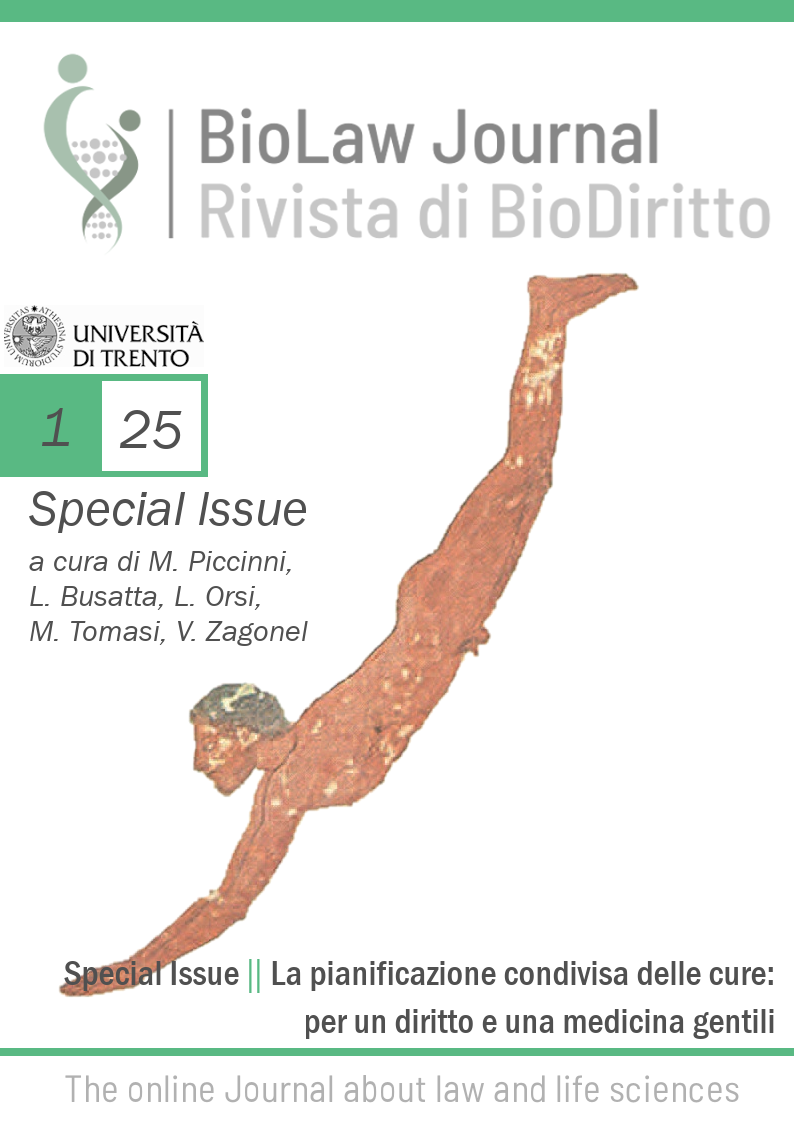La pianificazione condivisa delle cure come alternativa alle disposizioni anticipate di trattamento per le decisioni di fine vita
DOI:
https://doi.org/10.15168/2284-4503-3413Parole chiave:
Pianificazione condivisa delle cure, direttive anticipate di trattamento, fine-vita, malattia, autodeterminazioneAbstract
Il saggio mette a confronto la Pianificazione condivisa delle cure (PCC) e le Disposizioni anticipate di trattamento (DAT) per valutarne i punti di forza e di debolezza nel processo decisionale del fine vita. La legge n. 219/2017, che ha introdotto questi strumenti giuridici, va oltre l’ambito delle cure di fine vita, enfatizzando il consenso, la terapia del dolore e la capacità decisionale dei minori e delle persone incapaci in tutte le fasi della relazione terapeutica. Secondo gli autori, PCC e DAT non dovrebbero essere visti come strumenti opposti, bensì complementari: entrambi offrono alle persone l’opportunità di riflettere su salute, malattia e mortalità, evidenziando l’importanza delle relazioni interpersonali e riconoscendo il carattere vulnerabile dell’essere umano. Valorizzare questa dimensione intersoggettiva favorisce una comprensione più completa del processo decisionale in ambito sanitario e dell’autonomia personale.
##submission.downloads##
Pubblicato
Come citare
Fascicolo
Sezione
Licenza

Questo lavoro è fornito con la licenza Creative Commons Attribuzione - Non commerciale - Non opere derivate 4.0 Internazionale.





